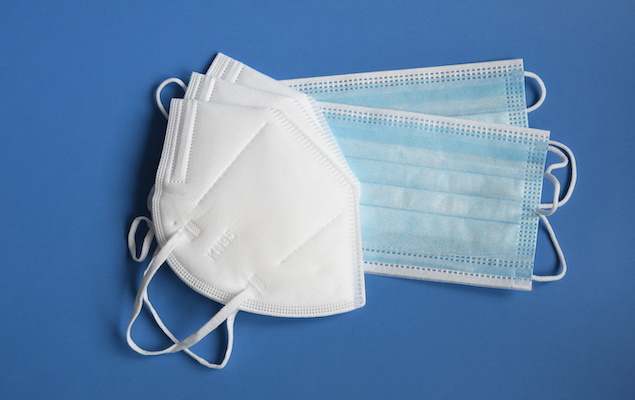Viruses surge nationwide
ADA encourages dentists to remain vigilant on infection control

The flu, norovirus, COVID-19 and RSV have been surging across the country, and the ADA is encouraging dentists to stay vigilant about current dental infection control protocols.
COVID-19 and seasonal influenza activity have increased in most areas across the country, according to the Centers for Disease Control and Prevention, and the risk of contracting respiratory syncytial virus— also known as RSV— is considered “very high” in many areas of the country, particularly among children.
Additionally, the CDC reported cases of norovirus, also known as the stomach flu, doubled in December compared to previous years. Data shows there were 91 outbreaks of norovirus reported during the week of Dec. 5, up from a maximum of 65 outbreaks reported the last few years during that first week of December.
The ADA is encouraging members to visit the CDC’s online guideline on masks and respiratory viruses prevention, which states that wearing a mask is an additional prevention strategy that people can choose to protect themselves and others.
According to the agency, wearing a mask can help lower the risk of respiratory virus transmission. When worn by someone with an infection, masks reduce the spread of the virus to others; they can also protect wearers from breathing in infectious particles from people around them.
Shane Ricci, D.D.S., chair of the ADA Council on Dental Practice, and Jennifer Thompson, D.D.S., vice chair, have both seen an increase in patient cancellations due to upper respiratory infections or influenza over the past few weeks.
When it comes to mitigating source control in the waiting area, Dr. Thompson said her dental team has kept the same protocol implemented during the COVID-19 pandemic. This includes trying to seat patients as soon as possible, offering hand sanitizer and tissues in the waiting room with no-touch trash receptacles and posting signs to cover a cough and let the team know if the patient is experiencing any respiratory symptoms.
Dr. Thompson also said she’s seen an increase in dental team members taking sick time over the holidays since Thanksgiving, particularly those with school-aged children. She emphasized that dental offices are extremely safe to visit, encouraging dentists to remain vigilant in their infection control practices and in urging patients to seek regular and comprehensive dental care during the surge.
“Dental professionals have navigated these viral surges successfully because we are diligent in following appropriate infection control guidelines that are already a mainstay of dental practice,” Dr. Thompson said. “Our dental teams are well-trained in personal protective equipment use, hand hygiene, appropriate surface disinfection and instrument sterilization. We have engineering and administrative controls in place to further mitigate risk.”
Dr. Ricci added that dentistry is a field that regularly deals with the transmission of oral disease and where infection control is designed to mitigate these issues.
“There are always times when viruses surge more than others. Simple precautions like being attentive to hand washing, social distancing and wearing PPE are designed to lower the risk of transmission,” he said.
The ADA continues to urge dental societies and dental offices to stay abreast of recommendations from their local public health departments.
For more information, visit the CDC’s guideline for masks and respiratory virus prevention.



